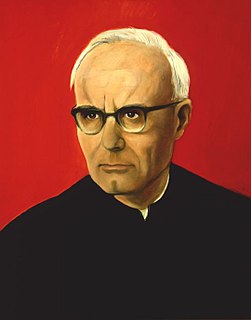A Quote by William James
What do believers in the Absolute mean by saving that their belief affords them comfort? They mean that since in the Absolute finite evil is ‘overruled’ already, we may, therefore, whenever we wish, treat the temporal as if it were potentially the eternal, be sure that we can trust its outcome, and, without sin, dismiss our fear and drop the worry of our finite responsibility. In short, they mean that we have a right ever and anon to take a moral holiday, to let the world wag in its own way, feeling that its issues are in better hands than ours and are none of our business.
Quote Topics
Absolute
Anon
Belief
Believers
Better
Business
Comfort
Dismiss
Drop
Eternal
Ever
Evil
Fear
Feeling
Finite
Hands
Holiday
Issues
May
Mean
Moral
None
Our
Ours
Outcome
Own
Potentially
Responsibility
Right
Saving
Short
Sin
Since
Sure
Take
Temporal
Than
Them
Therefore
Treat
Trust
Wag
Way
Were
Whenever
Wish
Without
World
Worry
Related Quotes
However small we are, we should always fight for what we believe to be right. And I don’t mean fight with the power of our fists or the power of our swords…I mean the power of our brains and our thoughts and our dreams. And as small and quiet and unimportant as our fighting may look, perhaps we might all work together…and break out of the prisons of our own making. Perhaps we might be able to keep this fierce and beautiful world of ours as free for all of us as it seemed to be on that blue afternoon of my childhood.
Since the primary motive of the evil is disguise, one of the places evil people are most likely to be found is within the church. What better way to conceal one's evil from oneself, as well as from others, than to be a deacon or some other highly visible form of Christian within our culture? ... I do not mean to imply that the evil are anything other than a small minority among the religious or that the religious motives of most people are in any way spurious. I mean only that evil people tend to gravitate toward piety for the disguise and concealment it can offer them.
A belief in moral absolutes should always make us more, not less, critical of both sides in any conflict. This doesn't mean that both sides are equally wrong; it means that since we all fall short of moral perfection, even the side whose cause is truly righteous may commit terrible acts of violence in defense of that cause -- and, worse, may feel quite justified in committing them. That is the difference between being righteous and being self-righteous. Moral standards are absolute; but human fidelity to them is always relative.
If there is no absolute moral standard, then one cannot say in a final sense that anything is right or wrong. By absolute we mean that which always applies, that which provides a final or ultimate standard. There must be an absolute if there are to be morals, and there must be an absolute if there are to be real values. If there is no absolute beyond man's ideas, then there is no final appeal to judge between individuals and groups whose moral judgments conflict. We are merely left with conflicting opinions.
Our moral reasoning is plagued by two illusions. The first illusion can be called the wag-the-dog illusion: We believe that our own moral judgment (the dog) is driven by our own moral reasoning (the tail). The second illusion can be called the wag-theother-dog's-tail illusion: In a moral argument, we expect the successful rebuttal of an opponent's arguments to change the opponent's mind. Such a belief is like thinking that forcing a dog's tail to wag by moving it with your hand will make the dog happy.
More than a billion women around the world want to emulate western women's lifestyles and are rapidly acquiring the material ability to do so. It is therefore vital that in our leadership we display some reserve and responsibility in our spending so that the world's finite resources will be available for our children, their children and their children's children
What do we mean by the word 'wisdom'? Usually we mean something superior to knowledge, something deeper. In the spiritual world, the word 'wisdom' is not used in that way. Here wisdom means Light, illumining Light, transforming Light. That which illumines our unlit consciousness is wisdom. That which transforms the finite consciousness into the infinite Consciousness is called wisdom.










































